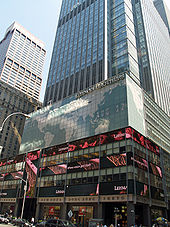[contextly_auto_sidebar]
A GREAT number of Americans have “moved on.” Their lives are fine, and the Great Recession is just a bad, dimly recalled memory, like a really bad winter flu from years ago. But for a number of us, it was one of the defining events of our lives — something whose consequences we deal with every day or every week. Over the last few days, the press has run a number of strong pieces about the crash of late 2008 — the Lehman Brothers collapse being the news peg for many of them.
Because I’ve argued, here and in my book Culture Crash, that the recession had enormous consequences for the arts, the people who make and disseminate them, and the middle class needed to sustain the whole system, I’ll try to highlight the best of these as they appear.
Most visibly, The New York Times devoted its Sunday Business section to the 10th anniversary of the Lehman mess, with an emphasis on “What We Lost” and “What We Learned.” (The paper also ran a page that listed the guilty bank executives who served time — a blank page.) The first of the pieces, about the way the recovering helped decimate an already ailing middle class, is essential reading. The whole package (and I’m still working through it) strikes me as an example of the best of what journalism can do.
Another Times piece is so powerful I could barely stand to read it all the way through. Penned by a youngish editor at the paper’s style magazine, the story describes MH Miller graduating from NYU soon after the recession hit. He left school with an enormous amount of student debt; his parents had been slammed by the collapse and worried about holding onto the house they had refinanced to pay for their son’s education. I won’t summarize it any further; the piece — titled “I Came of Age During the 2008 Financial Crisis. I’m Still Angry About It.” — is a must-read.
Miller also published a lengthy piece about student debt in general — his own and his generation’s — in the Baffler, reprinted in the Guardian. Here it is: another read-and-weep piece about how poorly the U.S. has adjusted to the ravages of free-market capitalism, which nearly stopped circulating 10 years ago. And then, when it go up and running again, it began to take a lot of us down, for years to come.

